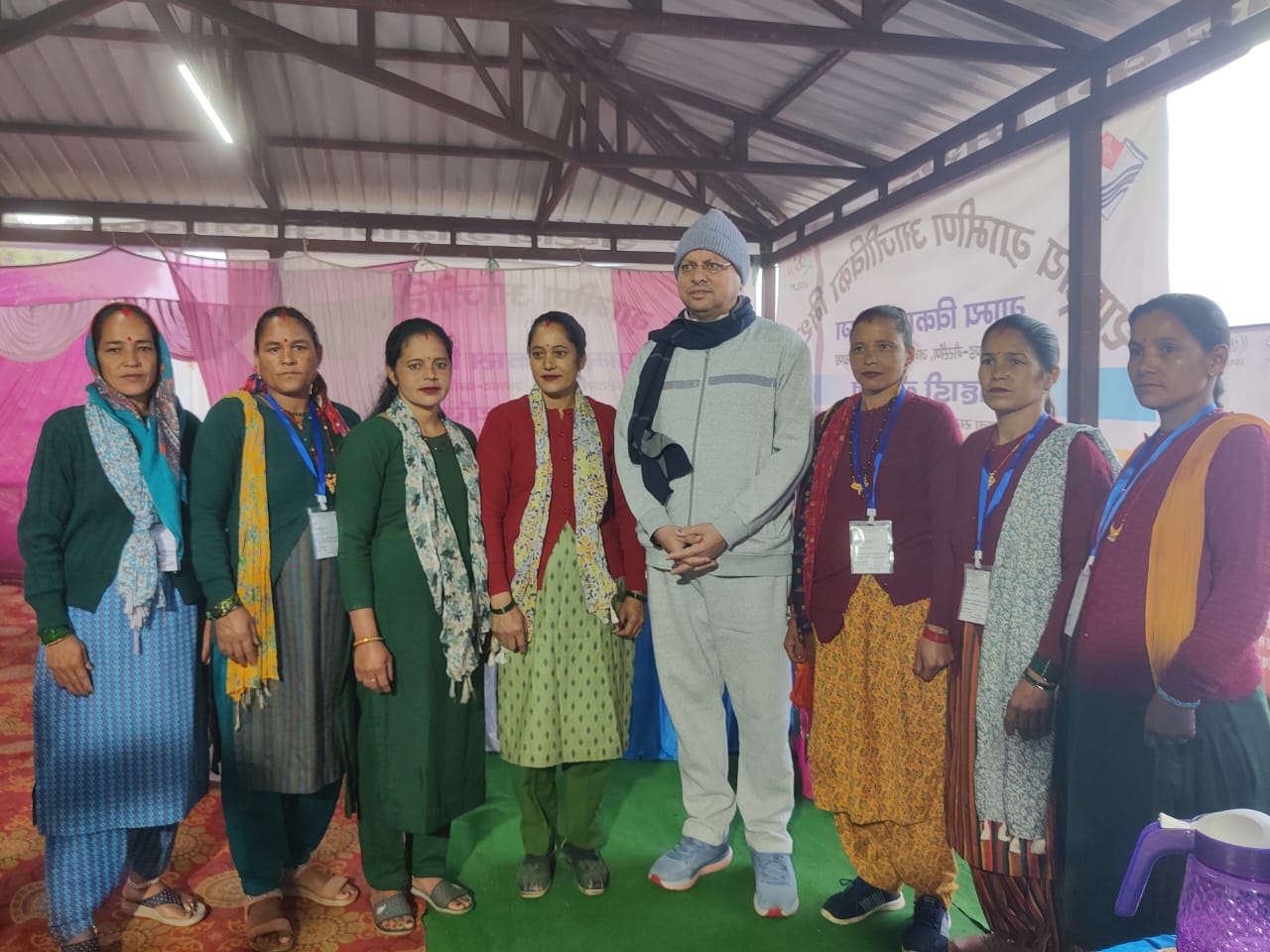Bhararisain (Uttarakhand) [India], August 19 (ANI): Uttarakhand Chief Minister Pushkar Singh Dhami, during his morning visit to Bhararisain (Gairsain) on Tuesday, spoke to women of a self-help group working under the National Rural Livelihood Mission and appreciated the work being done by them.
He also took feedback on the facilities being provided by the government. 
According to a release, the Chief Minister said that he “appeals to the tourists coming to Devbhoomi Uttarakhand to spend 5 per cent of their travel expenses on the purchase of local products” on the call made by Prime Minister Narendra Modi.
During this, the Chief Minister also met the sanitation workers working in the Vidhan Sabha premises and inquired about their food and accommodation arrangements. Everyone expressed gratitude for the facilities being provided by the government.
The Chief Minister said that the dedication of the sisters engaged in empowering rural livelihood and the dedication of the sanitation workers discharging their duties towards a clean and healthy society is a unique example of collective effort towards ‘Developed Uttarakhand.’
Earlier, Uttarakhand Waqf Board Chairman Shadab Shams extended his congratulations to the Pushkar Singh Dhami government on Sunday after the Uttarakhand Cabinet decided to introduce the Uttarakhand Minority Educational Institutions Bill, 2025.
Speaking to ANI, Uttarakhand Waqf Board Chairman said, “Many congratulations to the Dhami government. Today, there has been talk of forming a minority education authority in Devbhoomi Uttarakhand. With this, the new minority institutions that will be formed will get approval, and minority does not mean only Muslims, minorities also include Christians, Sikhs, Buddhists, Jains, Parsis so that everyone will get rights. I think it is a very positive step taken in that direction.”
Meanwhile, the Uttarakhand Cabinet made a historic decision by deciding to introduce the Uttarakhand Minority Educational Institutions Bill, 2025, in the coming session of the Legislative Assembly starting on August 19. Until now, the status of minority educational institutions has been given only to the Muslim community.
According to the release, the Bill seeks to extend the benefits of Minority Educational Institutions status to the minority communities other than Muslims as well. Once enacted, it will permit the study of Gurmukhi and Pali also in recognised minority educational institutions.
The Uttarakhand Madrasa Education Board Act, 2016 and the Uttarakhand Non-Government Arabic and Persian Madrasa Recognition Rules, 2019, will stand repealed from July 1, 2026.
Under the proposed Bill, this facility will also be available to other minority communities, i.e Sikhs, Jains, Christians, Buddhists and Parsis. This is the first such Act in the country, aimed at establishing a transparent process for granting recognition to educational institutions set up by minority communities in the state, while ensuring quality and excellence in education.
Key features of the Act include the formation of an authority – an “Uttarakhand State Authority for Minority Education” will be constituted in the state to grant the status of minority educational institutions. It includes mandatory recognition, ie any educational institution established by Muslim, Christian, Sikh, Buddhist, Jain, or Parsi communities must obtain recognition from the Authority to qualify as a minority educational institution.
Protection of institutional rights – the law does not interfere in the establishment and administration of minority educational institutions, but ensures that educational excellence is maintained.
Mandatory conditions – To obtain recognition, educational institutions must be registered under the Societies Act, Trust Act, or Companies Act. Ownership of land, bank accounts, and other assets must be in the name of the institution. Recognition can be withdrawn in cases of financial mismanagement, lack of transparency, or activities against religious and social harmony.
Monitoring and examination – The authority will ensure that education is imparted in accordance with the standards set by the Board of School Education, Uttarakhand, and that student evaluations remain fair and transparent.
The Act introduces significant changes for the minority community’s institutions in the state by establishing a transparent process for their recognition. It ensures the quality of education is maintained while protecting the Constitutional rights of minorities. Additionally, the state government gains the authority to monitor the functioning of these institutions and issue necessary directives as needed. (ANI)
Disclaimer: This story is auto-generated from a syndicated feed of ANI; only the image & headline may have been reworked by News Services Division of World News Network Inc Ltd and Palghar News and Pune News and World News
HINDI, MARATHI, GUJARATI, TAMIL, TELUGU, BENGALI, KANNADA, ORIYA, PUNJABI, URDU, MALAYALAM
For more details and packages












